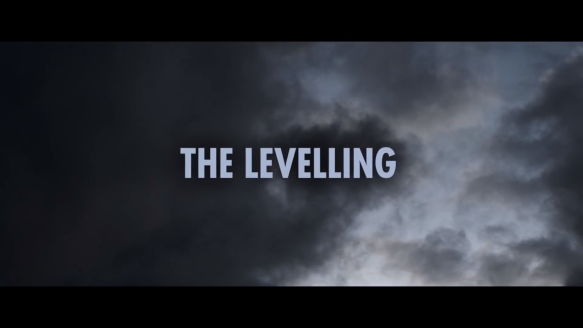4

Cristian Mungi’s previous films have been some of the finest dramas of the past two decades, socially conscious works which use an intense natural realism to convey feelings of dread, despair and decay. While Graduation continues his trend of using his native Romania as part of a broader commentary on modern societal values and their fundamental hypocrisies, Graduation takes a much more palatable, almost delicate approach to its subjects. While Mungi continues to only find difficult answers to complex questions, his interrogations feel more compassionate than before, though no less considered and precise.
In the past, Mungi has covered issues such as illegal abortion, eating disorders, queer issues and psychosis, though they tend to exist within broader ideas of an abusive and failing system. Graduation is closer to the system than ever before, as a doctor attempts to positively influence his daughter’s exam results after she is attacked. What begins as an attempt to skew an unfair result to her benefit becomes a case of perpetuity; that by condoning and facilitating a system in its dishonesty, you are simply asserting its and reinforcing its corruption. In doing so, you remove the independence and autonomy of those below it.
This broader idea mirrors the domestic focus of much of the film, drawing parallels between the whispered corruption of the state and the domineering presence and expectation placed upon children in their home lives. In doing so, Mungi humanises the processes and manipulations which exist within systems, simply by categorising them as products multiple human weaknesses. However, once entangled, the reasoning and rationale cannot be deciphered and regardless of intent, engaging in corruption merely breeds further corruption.
3

Taking place almost entirely on a small farm in Somerset, The Levelling is an expansive film of remarkable restraint which alchemizes contrasting feelings of resentment and kindness to fashion something penetrating and elegiac. Hope Dickinson Leach’s debut as both director and screenwriter finds her populating her film with intricate, personal details which she audaciously refuses to authoritatively expand upon, content in constructing an image that is idiomatic to her characters rather than pandering or expositing to an audience.
The Levelling initially appears to be furrowing itself into a mystery, as a sister returns to her childhood family farm to find her brother has died from a self-inflicted wound. Her father, boisterous and seemingly pathologically disinterested, refuses to confront the death, continuing to act as if all were normal. However, much like the flooded farmhouse at its centre, there is an undercurrent of unspoken despair and guilt. The Levelling takes its time to dig through its characters histories in an organic yet pressing way, examining their insecurities, flaws and grief with a commiserate eye.
On the outskirts of the human story, there’s an emphasis placed upon the inability of nature to react or care to the psychological weight of the central characters. There’s a sense that this seeming lack of meaning or purpose has unreasonably formed certain worldviews within the film, forcing a breakdown of communication and letting unspoken pain root itself and take control. Despite these nihilistic ruminations, in the final moments a wave of empathy breaks through, a momentous powerful force that changes the outlook from one of bleak stoicism to profound human understanding. This refusal to succumb to silence, detachment and false imperturbability brings an emotional intimacy and comprehension to a world seemingly bereft of understanding. It gives a faint but tangible ray of hope, with the knowledge that a destructive cycle can only be perpetuated if left unacknowledged.
2

Greta Gerwig’s directorial debut is a small marvel, an intimate buzz through the final high school year of a teenage girl in Sacramento. Honest to the point of frequent discomfort, the true joy of Lady Bird is how softly and without irony it allows itself to be. In a genre often mired by archness and sardonic stylings, Lady Bird soars on sincerity, nostalgia and gentle sentimentality. The nostalgia and sentimentality never consume the film, with the titular character’s acerbic, selfish and ungainly nature presented without apology or recourse. She is endearing despite herself, captured with wit and occasional bursts of kindness which signal a greater maturation and depth to come.
Gerwig’s screenplay evokes a sense of disillusionment of place and people not simply through dialogue, but through its intelligent structure. While the film chooses to employ a few impressionist flashbacks towards the end, it mostly paces itself and reveals itself in the manner of memory. The story unfolds over a year but feels like a collection of vital, alive, subjective snapshots, often capturing a single exchange or line of dialogue and moving on. Whether these memories are embarrassing, poignant or destructive, they all come together to form something perceptible and revealing, like a warm recollection, recounted by someone slightly older and wiser.
There’s a selflessness at the heart of Lady Bird, in both the film and the character. It’s not a film about developing the singular identity or affirming the nature of its central character. Gerwig instead uses and dismantles the staid fallbacks of stories about young adults to cover a broader canvas. The journey that Lady Bird takes isn’t one of self-fulfilment, but rather one of finding yourself in other people and the places you call home, and understanding that others live their own internal lives. This poetic reverence for home and nostalgia doesn’t come across as trite or vapidly comforting, nor does it undermine the central characters meaningful and purposeful ambition. Instead, the film considers that wherever we go, we carry the places and the people that we care about with us.